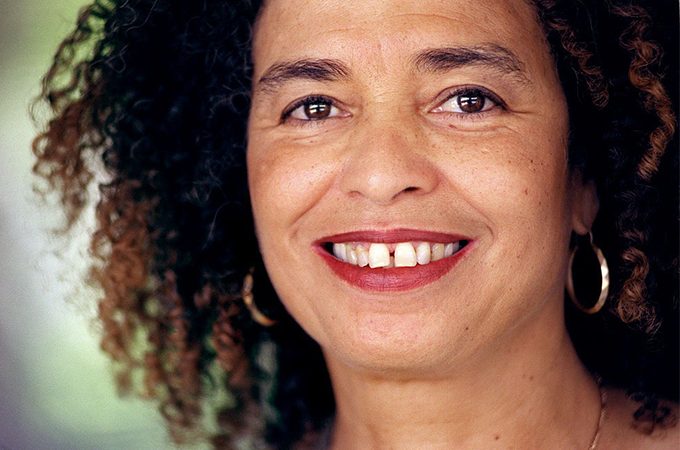Dr. Angela Davis is a force to be reckoned with. If you are unfamiliar with her name, we highly suggest you get to know it. On Monday afternoon, Angela Davis—renowned author, social justice activist, and academic—delivered an eloquent and inspiring speech at the University of Redlands Memorial Chapel. Best known for her association with the Black Panthers, support of the U.S. Communist Party, fight for gender equity, and prison reform crusading, Davis continues to set the stage for debates on women, race, and class. She took the podium at the U of R to unabashedly offer her analysis of social reform movements of the past and present.
In her opening remarks, Angela Davis stated that we “live in a time of much-needed politicization” where “culture and politics are inseparable.” Davis expounded on the need for politicization by mentioning the U.S. presidential inauguration of Donald Trump a little over a year ago. As Davis reminded the audience, Trump’s remarks have included comments captured behind the scenes at the NBC show “Access Hollywood” that were highly demeaning to women.
To develop her point on the conflation of politics and culture, she referenced actions made by Black popular culture icons—Kendrick Lamar and Janelle Monáe. Lamar and Monáe have both accentuated U.S. racial, political, and societal issues. Davis acknowledged the effectiveness of Lamar in raising awareness through his 2017 and 2018 Grammy performances. Monáe also received praise for her powerful Grammy speech this year advocating for the Time’s Up movement. Davis reiterated Monáe’s words, “Just as we have the power to shape culture, we also have the power to undo a culture that does not serve us well.”
Davis called attention to seven trailblazing social justice movements—the Civil Rights Movement, Black Power Movement, 1960s Women’s Liberation Movement, Time’s Up, Me Too, Resistance (to Trump), and Black Lives Matter—and offered her take on the strengths and shortcomings of each. According to Davis, each was able to advance lasting change, spotlighting previously shrouded societal issues and reframing of debates on gender and racial relations. The movements fell short, however, when lacking intersectional approaches to grassroots engagement and consideration of different kinds of people.
Davis emphasized the work of countless individuals whose collective contributions have brought about beneficial political and societal change. “Nobody would know my name if it weren’t for the collective works of others around the world,” said Davis. She stressed the importance of examining and crediting the collective work of activists, rather than attributing progress to one (usually male) leader.
Davis brought to the audience’s attention the names of women in social justice reform. These included: Rosa Parks, who was the lead investigator of a case about the gang rape of Recy Taylor by six White men; Joan Little, the first woman to be acquitted of a murder charge because she was “acting in self-defense” to prevent rape; Tarana Burke, founder of Me Too; Aly Raisman, U.S. Olympic gymnast and one of 150 women accusing former Team USA’s physician Larry Nassar of sexual abuse; and Alyssa Milano, one of the representatives of the Me Too movement.
Upon highlighting the ceaseless work of women in creating and sustaining social reform, Davis noted the intersection of gender and race in these movements. She spoke of how the word “women” has often been synonymous with White women. Moreover, those in lower economic classes have also often been left out of these movements, as have transgender Black women. Davis underlined a need for people of all racial identities, genders, and economic statuses to be included in the fight for justice.
Davis imparted a powerful message, heightening awareness of social issues that continue to plague our generation today, and it was an honor and a privilege to hear a revolutionary icon who had such a profound effect on the Civil Rights movement share her knowledge at University of Redlands. At the beginning of her talk, Davis said her principal objective was for the audience to “stretch the frame of analysis of movements.” Through her speech on the importance of collective action and intersectionality in activism, she did just that. We hope that her message of developing movements with inclusion and cooperation did not fall on deaf ears. The need for diverse coalitions striving for sociopolitical and economic justice, while learning from the missteps of past movements, is more important now than ever.






